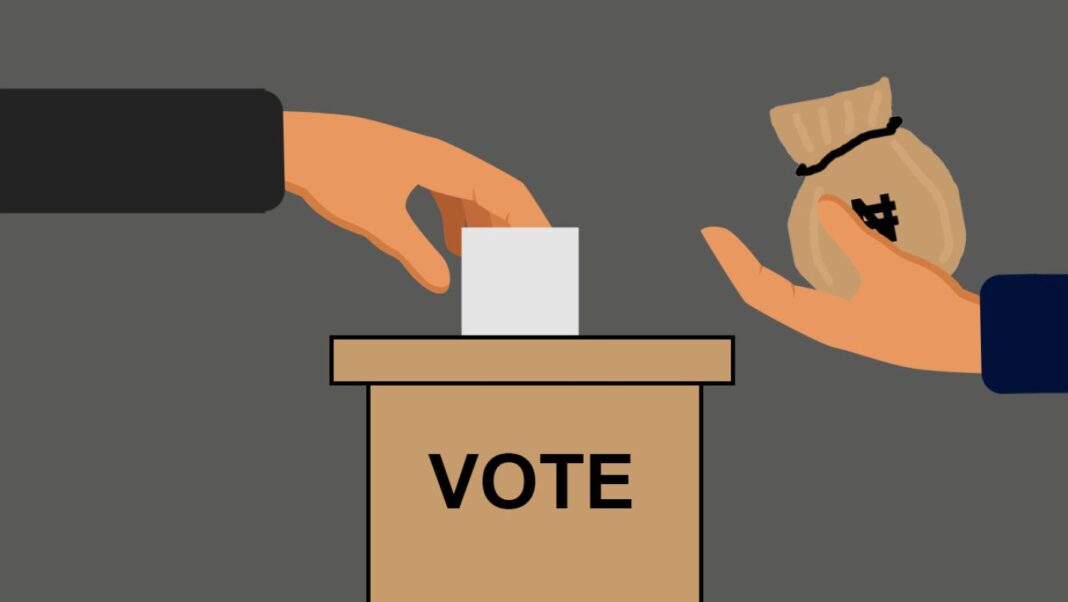Sri Lanka Supreme Court in its determination on ‘Regulation of Election Expenditure Bill has said that several of it clauses need special majority (2/3) in the parliament to pass it. Major issue SC has pointed out is the regulation of only individual candidates but not political parties.
Excerpts from the the Sri Lanka Supreme Court
A careful consideration of the long title and the Clauses in the Bill show that the Bill only regulates the donations and contributions received as well as the expenditure incurred by the candidates contesting an election and not the political parties or independent groups.
Hence, it is necessary to consider whether the absence of provisions in the Bill to regulate the expenditure of political parties and independent groups affects the candidates at an election and also the sovereignty of the people.
In Sri Lanka, recognised political parties or independent groups should submit nomination papers stating the names of their candidates who intend to contest an election. At an election, voters are required to cast their votes in favour of a recognised political party or an independent group of candidates in the first instance.
Thereafter, the voters would indicate their preferences in respect of the candidates. However, voting for candidates is not mandatory under the election laws of Sri Lanka. Further, the Bill in its present form seeks only to regulate candidates and not political parties.
Thus, political parties or independent groups can promote themselves without any restrictions. Such campaigns at an election would benefit candidates belonging to certain political parties or independent groups. Furthermore, it may adversely affect the outcome of an election. Moreover, the absence of provisions to regulate receipts and the expenditure of political parties or independent groups will adversely affect the candidates, as the present electoral system in Sri Lanka requires the voters to vote for a political party or an independent group in the first instance and thereafter vote for the individual candidates if the voter chooses to do so.
Therefore, introducing legislation only to regulate the expenditure of individual candidates would adversely affect not only the candidates at an election but also the sovereignty of the people. Hence, we determine that the Bill in its present form violates Articles 3, 4, and 12(1) of the Constitution.
Accordingly, the Bill may only be passed by a special majority required under Article 84(2) of the Constitution and approved at a referendum by virtue of the provisions of Article 83 of the Constitution.
The ‘authorised amount’
Clause 3 states; “After the conclusion of the period of nomination specified in the Proclamation or Order requiring the conduct of an election under any law specified in Clause 2,the Election Commission shall, in consultation with recognized political parties, independent groups and other candidates contesting such election, fix by Order published in the Gazette, a sum of money in Sri Lankan rupees to be used for the purpose of calculating the authorized amount in accordance with the provisions of this Act. for such election.” [emphasis added] The said Clause does not specify guidelines or criteria to calculate the ‘authorised amount’ by the Election Commission.
The absence of a stipulated criteria or lack of guidance in calculating the ‘authorised amount’ referred to in the said Clause renders the said Clause unreasonable, arbitrary, and capricious.
Therefore, we determined that Clause 3(1) of the Bill violates Article 12(1) of the Constitution and may only be passed by the special majority required by Article 84(2) of the Constitution.
However, if the long title and the Clauses in the Bill are suitably amended to apply the Bill to individual candidates, political parties, and independent groups contesting at an election, the aforementioned inconsistency will cease, and the Bill can be passed in Parliament by a simple majority.
Read the determination in full: SC Determination-Regulation of Election Expenditure
